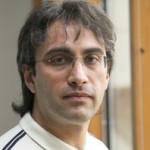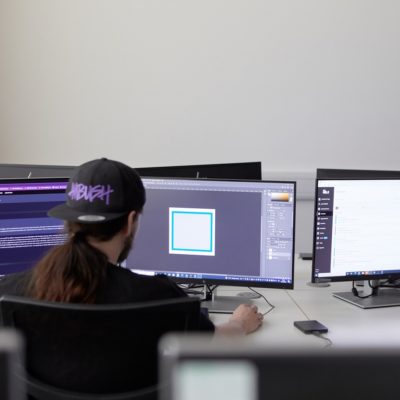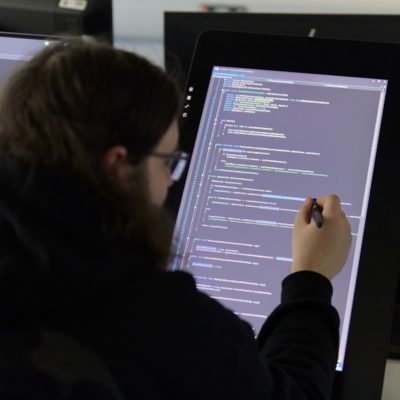Senior Lecturer - Computing
Faculty of Arts, Science and Technology

Computing MPhil/PhD/PhD by Published works
Key Facts
-
Level
PostgraduatePG
-
Duration
MPhil Full Time (on and off-site): 12 months – 3 years MPhil Part Time (on and off-site): 30 months – 5 years
PhD Full Time (on and off-site): 2 – 4 years PhD Part Time (on and off-site): 3 – 6 years
PhD by Published Works Part Time (on and off-site): 1 – 2 years -
Starting
October, March
-
See Fees section
-
See Fees section
-
Waterside
Updated 28/03/2025
Updated 28/03/2025
Get in touch
For questions regarding study and admissions please contact us:
UK STUDENTS ENQUIRIES
study@northampton.ac.uk
0300 303 2772
INTERNATIONAL STUDENTS ENQUIRIES
Overview
Earn your doctorate in computer science and elevate your expertise in the field with a postgraduate research degree from the University of Northampton. Whether you pursue a PhD, MPhil, or PhD by Published Works, our programmes are designed to enhance your knowledge and research abilities. Our programme is informed by active researchers, industry professionals, and academic bodies, ensuring the content is up-to-date, relevant, and engaging. As a research student, you will undertake a sophisticated research project guided by a select group of academic experts and a Director of Studies. Commitment to personal skill development and scholarly presentations is expected. Upon successful thesis defence, you will be awarded the most prestigious degree from a UK university, positioning you for advanced management roles within the industry. Applications are welcomed across all our dynamic research domains.
Find out more about our Centre for the Advanced and Smart Technologies (CAST).
The submission cut-off for the October intake is the 1 August, while the deadline for the March intake falls on the 11 December.
Highlights
- Advance the field of computing and computer science.
- Team of distinguished professionals.
- Delve into pioneering research domains.
- Exceptional guidance and oversight.
- Robust supervisory techniques and assistance.
- Collaborate with renowned specialists.
Entry Requirements
Candidates applying should possess a Master’s qualification or have achieved a 2:1 or first-class honours in a bachelor’s degree (or international equivalent) in a field relevant to the proposed project. Equivalent academic backgrounds will also be considered, particularly if you have gained experience or developed a keen interest in your field of work after your formal education.
Additionally, it is required that you substantiate your preparedness to undertake the proposed project detailed in your application. This substantiation should be presented as a comprehensive research proposal. Please view the guidance notes on how to write a proposal for a research degree.
Acceptance into the Computing PhD programme is contingent upon the following conditions:
- A positive outcome from the interview conducted by the University.
- Availability of appropriate Research Supervision Support.
Course Content
Fees and Funding
2025/26 Tuition Fees
Fees quoted relate to study in the Academic Year 25/26 only and may be subject to inflationary increases in future years.
Doctor Of Philosophy Degrees
- UK – Full Time: £5,700
- UK – Part Time: £2,845
- International – Full Time: £16,350
- International – Part Time: £7,640
Doctor of Philosophy Degrees by means of Published Works
Including: Doctor of Philosophy (PhD) by means of published works.
- UK – Part Time: £3,600
- International – Part Time: £7,840
Please visit the funding page for more details on how to fund your study.
Staff
Careers and Employability
When you finish this course, you will be able to find research and development roles within the industry or progress into an academic career or enter business at a managerial level. Our graduates have gone on to further study and secured jobs in senior positions around the world.












